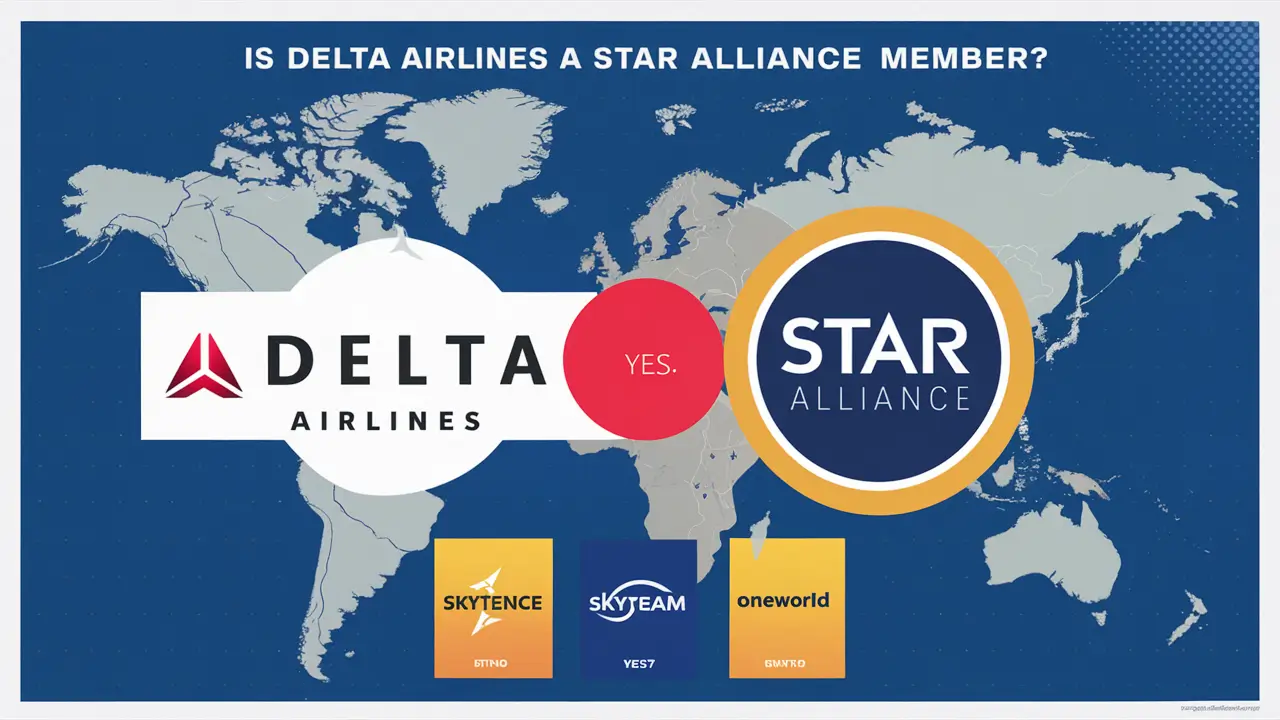Is Delta airlines a Star Alliance?

Here is a 977-word article on whether Delta Air Lines is a Star Alliance member:
Is Delta Air Lines associated with Star Alliance?
Due to the various involvements and affiliations it has, it may be quite tricky to distinguish which international airline alliance Delta Air Lines is a member of. Delta works with a lot of airlines, but it cannot be a member of Star Alliance.
What is the Star Alliance?
Among the three largest global organizations with headquarters located anywhere is Star Alliance. The first worldwide airline partnership, the Star partnership was established in 1997. Its membership consists of 26 numbers: Lufthansa, United Airlines, Air Canada, All Nippon Airways, Singapore Airlines, Air China, and others. Combined all of Star Alliance's current partners, who link over 1300 airports worldwide in 195 countries.
One kind of airline alliance that allows regular travelers to enjoy continuous travel with many member airlines and obtain reciprocal rewards is Star Alliance. On some airlines connected to Star Alliance, for example, travelers may accumulate and apply several types of points. Star Alliance also guarantees certain regulations and processes to be followed that improve the chance of flight connections.
Current Star Alliance Members:
Adria Airways
Aegean Airlines
Air Canada
Air China
Air India
Air New Zealand
ANA
Asiana Airlines
Austrian Airlines
Avianca
Brussels Airlines
Copa Airlines
Croatia Airlines
EGYPTAIR
Ethiopian Airlines
EVA Air
LOT Polish Airlines
Lufthansa
Scandinavian Airlines
Shenzhen Airlines
Singapore Airlines
South African Airways
Swiss International Air Lines refers to the national airline of Switzerland, which is popular for operating several flights to various countries in the world.
TAP Air Portugal
Thai Airways
Turkish Airlines
United Airlines
Why does Delta Airlines not join the Star Alliance?
Right now, Delta Discuss Lines isn't a related part of the Star Alliance, which is additionally known as Star Arrangement. Delta, be that as it may, is a portion of the Sky Group collusion, which began in 2000 four years after the founding of the Star Alliance.
Delta may team with airlines like Air France, KLM, Aeromexico, China Airlines, Korean Air, and others beneath the SkyTeam union. In the same way as the Star Collusion, the SkyTeam individuals may amass and exhaust visit flyer focuses over the alliance's accomplice firms.
Delta's Non-Alliance Airline Partnerships
In addition to SkyTeam partnerships, Delta has separate, non-alliance partnerships with other airlines, In addition to SkyTeam partnerships, Delta has separate, non-alliance partnerships with other airlines, like:
Virgin Atlantic
Virgin Australia
AerolÃneas Argentinas
Gol
Kenya Airways
LATAM
WestJet
Such non-alliance associations help Delta enhance its network coverage and cooperation in terms of schedule linkages, joint ventures, barter systems, and code sharing.
Still, Virgin Atlantic does not belong to SkyTeam, while Virgin Australia does not have such a membership; however, Virgin Atlantic and Delta are the transatlantic partners that work together within the framework of the joint venture. As for the Delta passengers, Virgin Australia let them accrue and redeem the SkyMiles.
Equity investments, which provide Delta with ownership stakes in other carriers, include Aeroméxico, LATAM, Virgin Atlantic, etc. The equity investments provide strategic partnerships with the long-term capitalization that Delta has been seeking.
Is It Possible That, Someday, Delta Air Lines Could Become a Member of the Star Alliance?
However, at the current time, Delta is fully entrenched in SkyTeam, which means that while it may not be impossible to switch alliances or join Star Alliance, it is highly unlikely. However, some barriers make the switching complicated.
First, airlines expend considerable time and dedicated resources to their current partners. The relationship between frequent flyer programs, passenger services, airport operations, and IT systems. As evidenced by the following steps, transitioning these services is not an easy feat.
Furthermore, some of the contracts that chain the partners limit them from being part of other alliances in the next 5–10 years after they leave the current alliance. As far as the future evolution of the partnership is concerned, it can be stated that Delta (and other SkyTeam airlines) could only wait for these clauses to expire to proceed with any transition.
However, more and more, the airline industry continues to grow in terms of new joint ventures and equity investments beyond the traditional alliance structure. The key message here is that although it is not impossible for Delta to quit SkyTeam for a far greater opportunity in the future, it can still join Star Alliance. Indeed, Delta is well-versed in the concept of having non-alliance airline partners with Virgin Atlantic and WestJet. Having reciprocal Star Alliance benefits on top is somewhat manageable but requires coordination in the long run.
For now, though, all those who often travel by airplane can be sure that Delta Air Lines and other major airlines of the United States, "American Airlines and United Airlines,“ will not be in the same alliance. Delta will continue to serve as the anchor airline in SkyTeam, while United Airlines, its competitor, will still be a member of Star Alliance. The web of contracts and systems that have been put in place between and among alliance airlines preserves the status quo. For the time being, at least, it is relatively easy to implement a set of checks and balances that may be sufficient to prevent the abuse of power by a tyrannical government.
